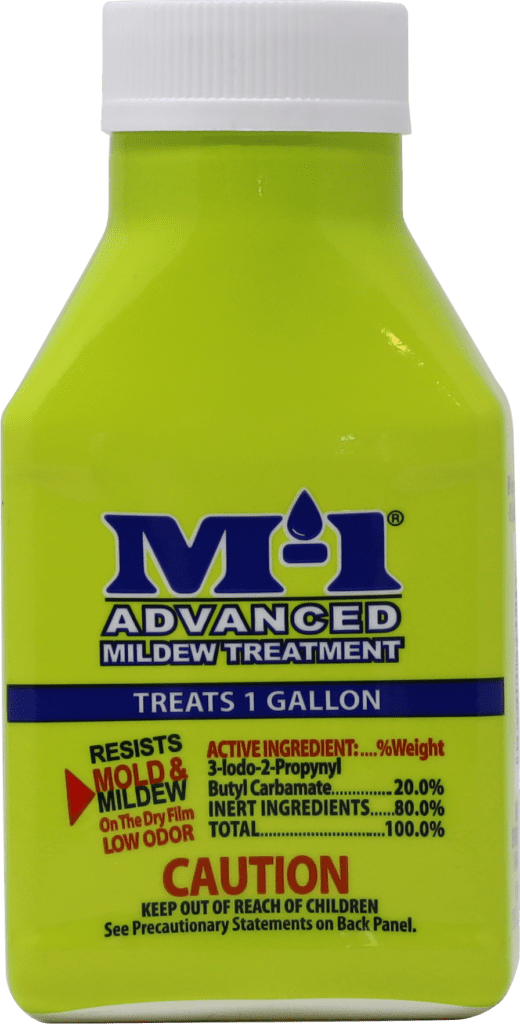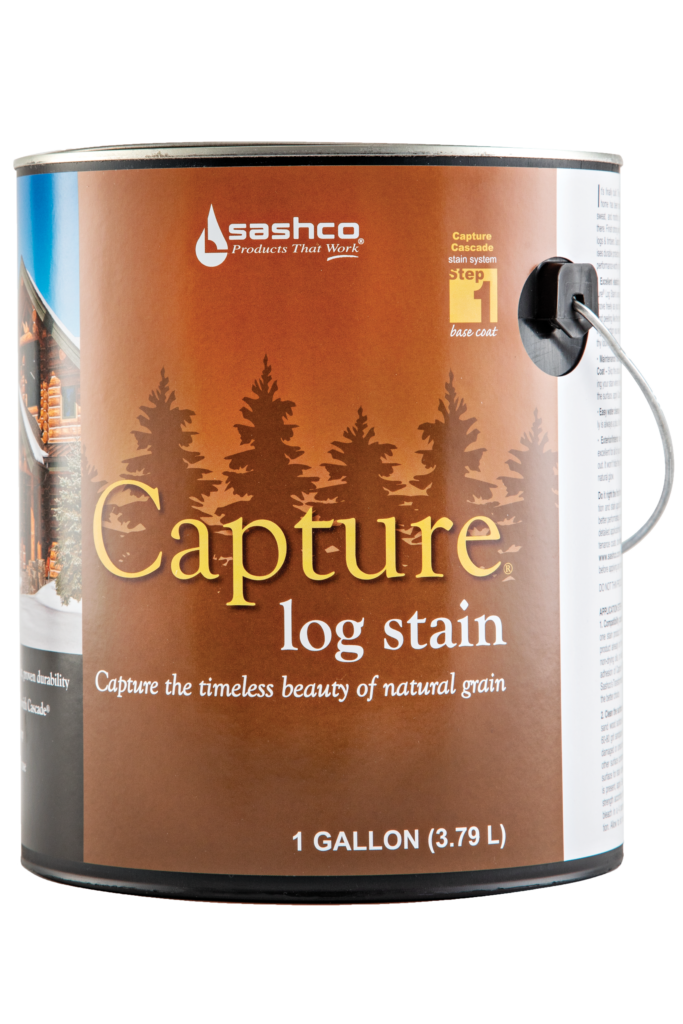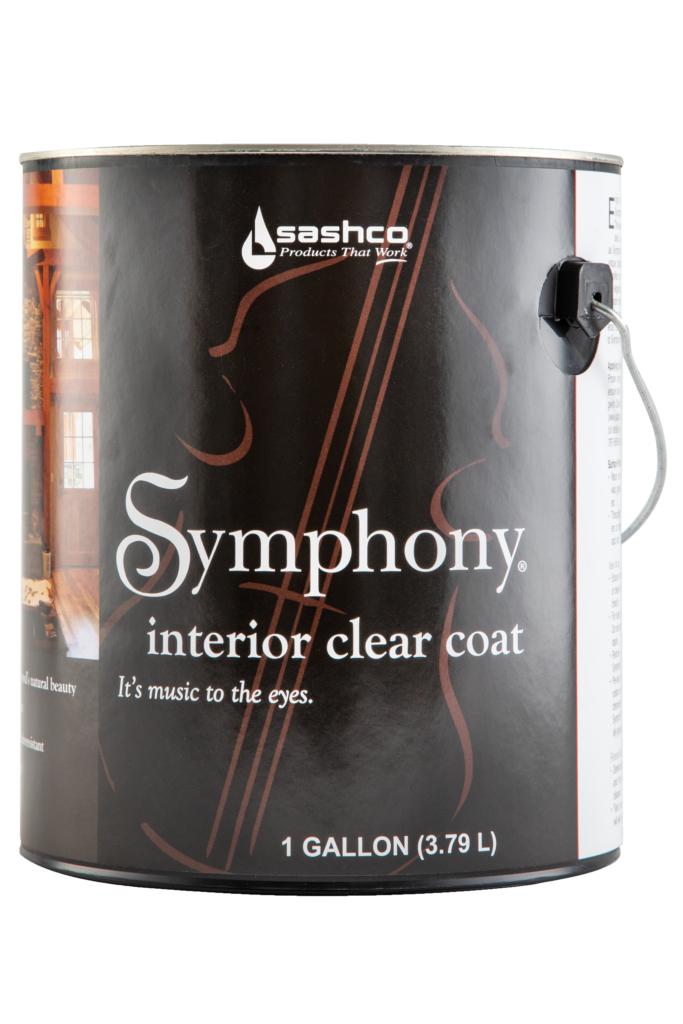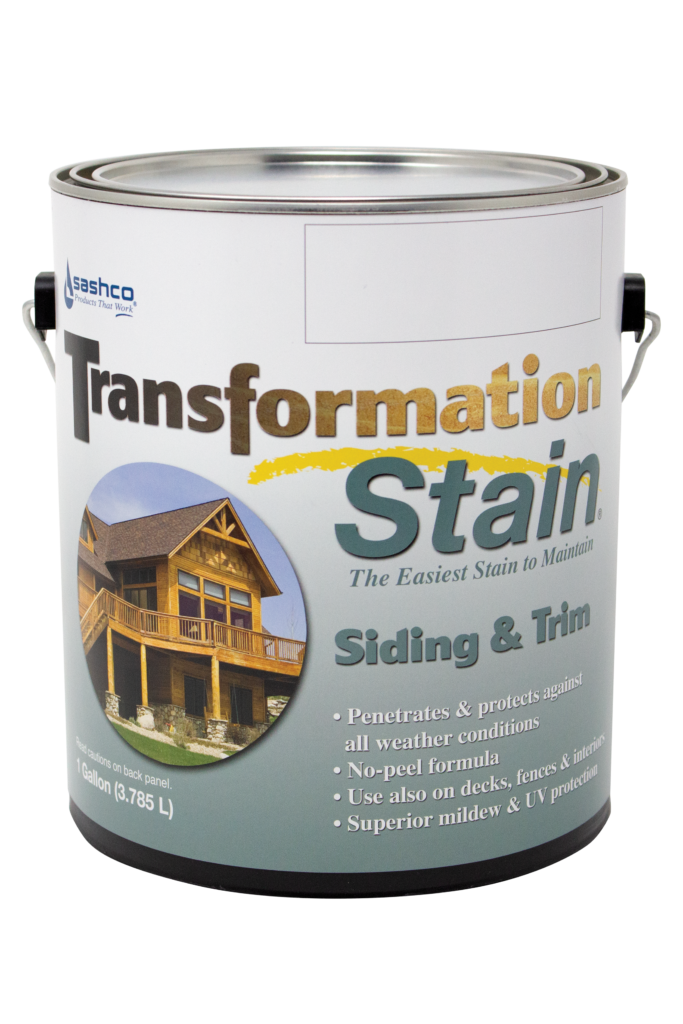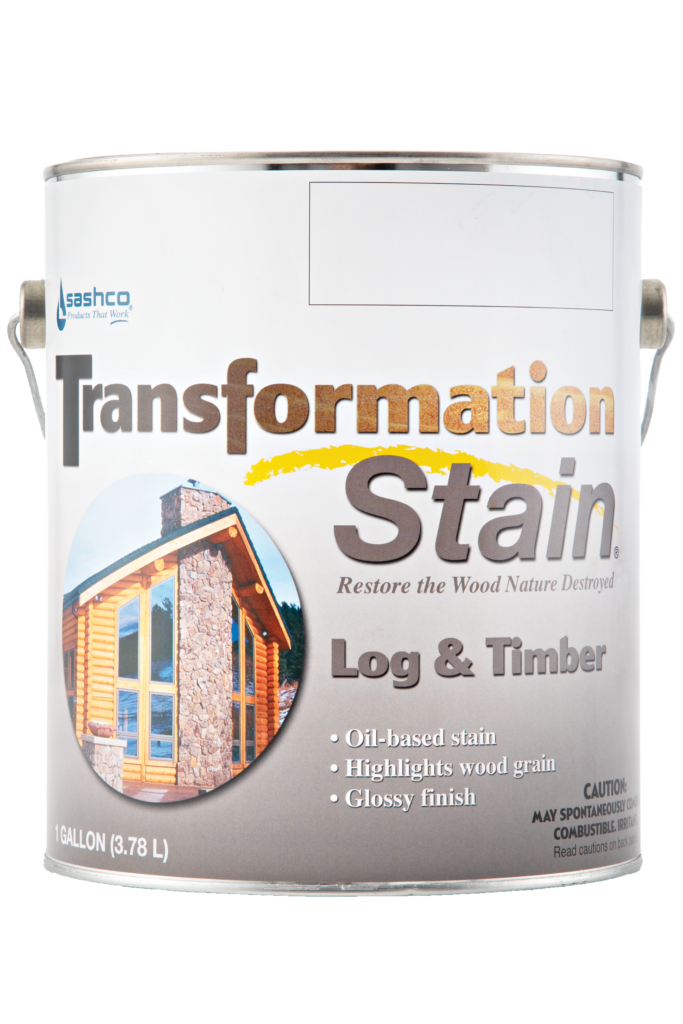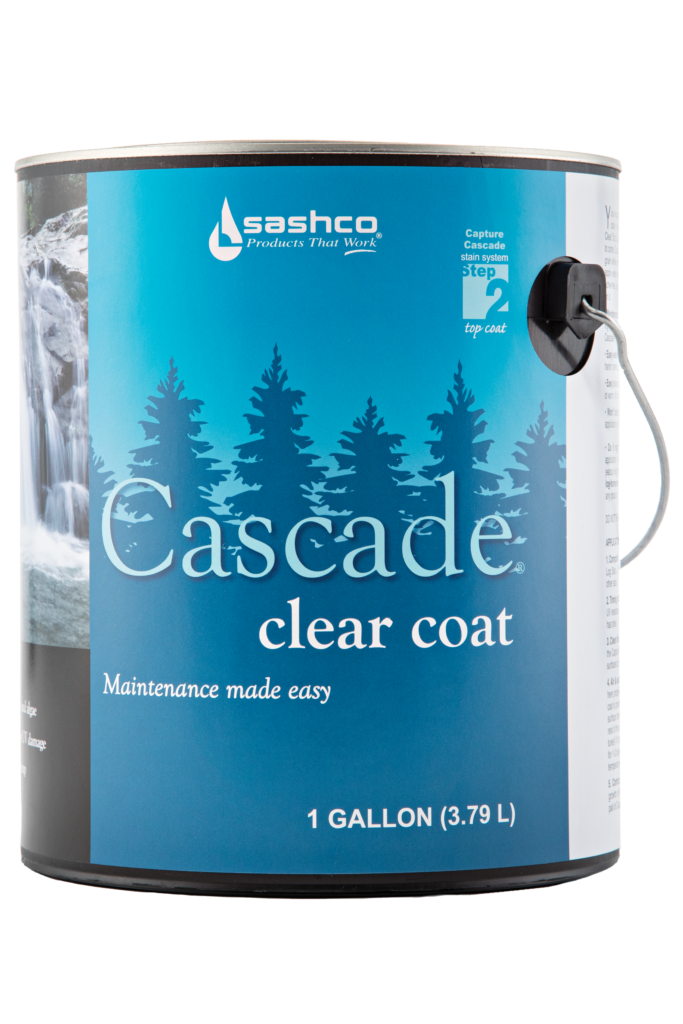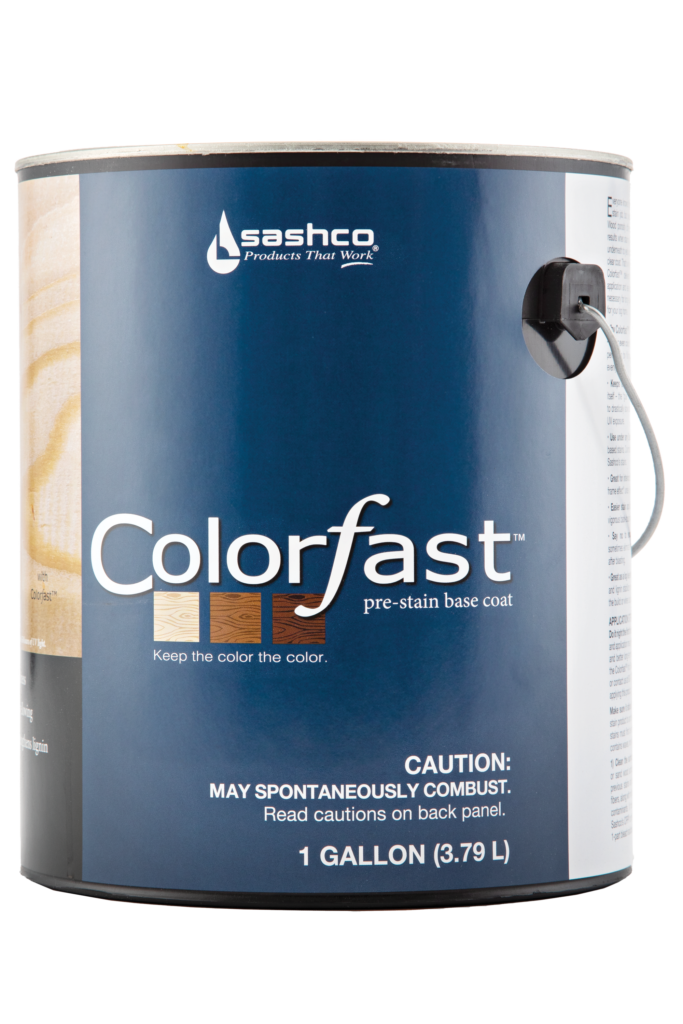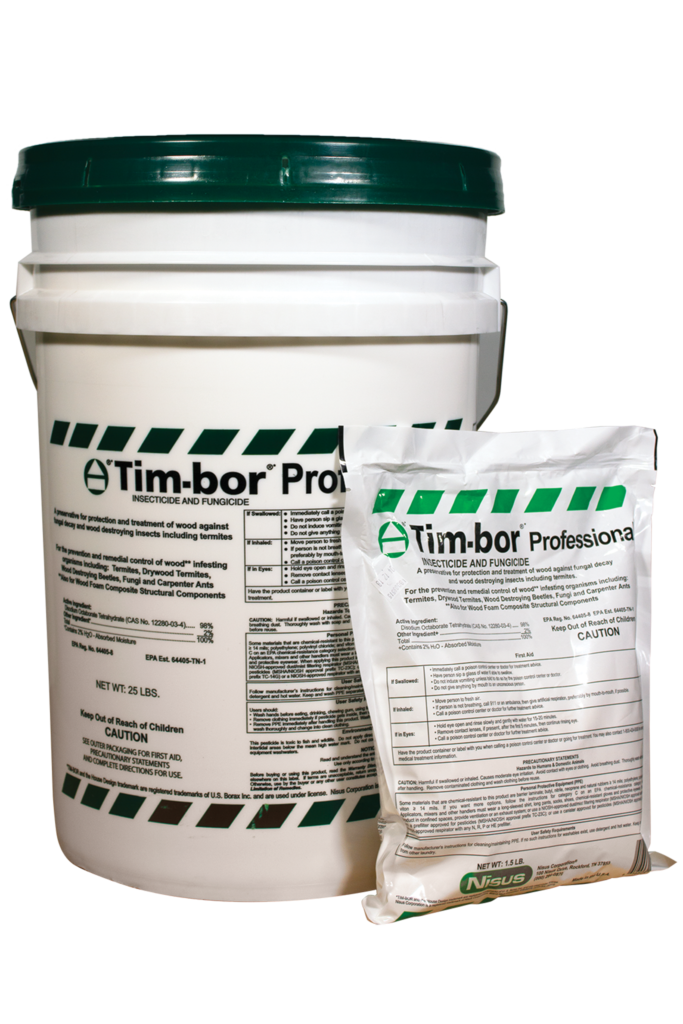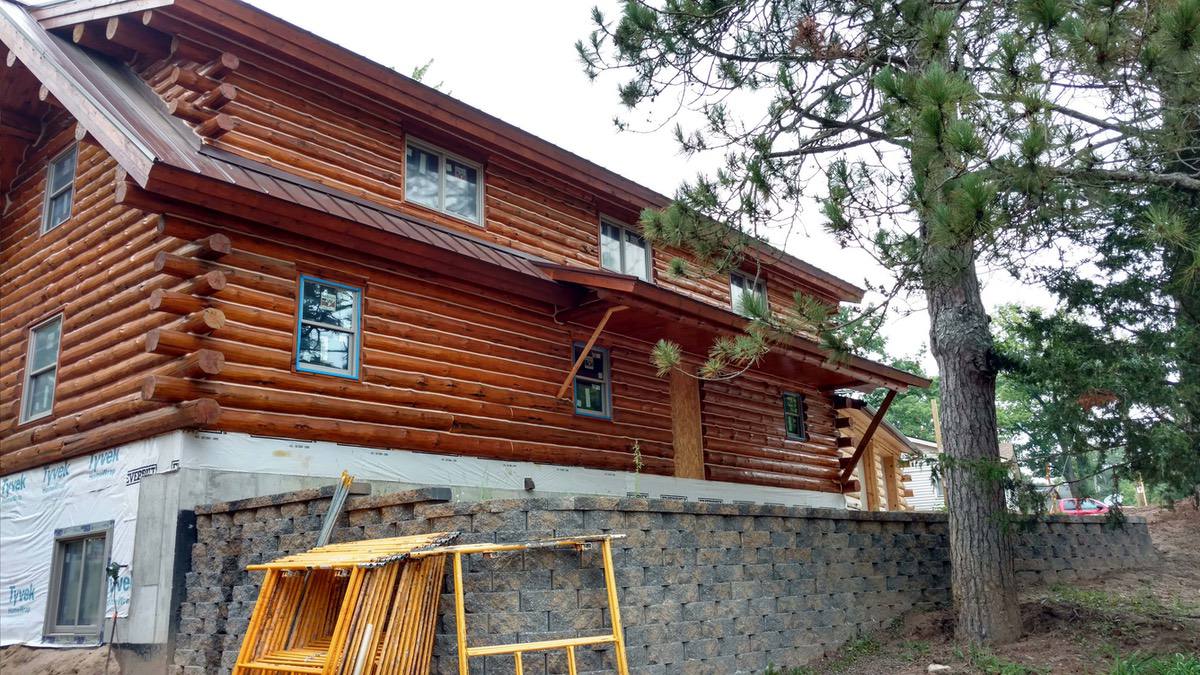
What to Look for in a Log Contractor-11 Tips
Considering a little log home maintenance? Maybe a larger-scale restoration or renovation is in your future. Home improvement TV shows may make this process look easy, but for the average the homeowner, the skillset required is typically outside his/her wheel- house. To be successful, you may want to call in the pros.
Nick Burch, a third-generation log home products manufacturer and restoration expert knows exactly what to look for, and what to expect, from a log home maintenance and restoration contractor. “Reduce what they need to know in order to know what they need to do,” is his motto, meaning that you, as the homeowner, don’t have to be an expert to figure out how to proceed with your restoration. You just need to know what to look for in the contractor you choose.
So how do you find that person?
Here are Nick’s top 11 points to keep in mind as you conduct your search for the perfect contractor:
1: EDUCATE YOURSELF SO YOU ASK THE RIGHT QUESTIONS.
You don’t need to get into the weeds on procedure here (see point #2), but you do need to understand the extent and complexity of your project. Your knowledge, combined with a contractor’s experience, will encourage open communication from the get-go. Even basic comprehension will allow you to partner with the right contractor for the job.
2: THEY SHOULD KNOW MORE THAN YOU.
As the homeowner, it’s not your job figure out how to proceed with your restoration. The contractor you choose should be the expert on the details, but they also should be willing and able to explain it to you.
3: UNDERSTAND YOUR OWN EXPECTATIONS.
But don’t stop there — use these as criteria to help you find the contractor that best fits you and can deliver on those expectations. Here’s how: Envision how you want your home to look and perform once the work is complete. Then, create a comprehensive list of these details and prioritize them. Not only will doing so help you understand your desires and expectations, it will help you better communicate them as you interview prospective contractors — especially after you hire someone.
4: ASK THE “HARD” QUESTIONS.
For example, are they in the business of log home restoration or is this a side component for them? How many have they done? What kind of training do they have? Do they use log home-specific products and have the right equipment? Log home repair is a different beast that a jack-of-all-trades contractor may not be prepared to handle. You should feel satisfied that he/she is knowledgeable and invested in the log home trade. One question that’s a no-brainer is “how long have they been in the log home maintenance/restoration business?” Longevity counts, but don’t discount someone new to log home finishing. They often will go above and beyond as they work to establish their reputation
5: CHECK REFERENCES AND DIG DEEP.
Sure, this seems obvious, but you’d be surprised at how many people don’t do it. A contractor should provide you with references who are willing to speak to potential clients and give them detailed feedback — both the good and the bad. We know this may not always be the case, so ask the provided references if they have any friends or neighbors who used the same contractor and would be willing to speak with you. Sometimes the second tier of references provides interesting intel. And always check the Better Business Bureau. No, not everyone reports an issue to the BBB, but it’s ideal if their report card here is good. You also may want to check if your prospective contractor is part of a local home builder’s association. Not only does membership in this type of organization indicate a willingness to stay on top of the industry, you may be able to get a sense of your prospect’s reputation within the building community.
6: VERIFY THAT THEY ARE LICENSED, INSURED AND LAW-ABIDING
God forbid someone is injured on the job — but if it happens, you certainly don’t want to be on the hook for it. Ensure that the contractors you’re considering not only have insurance to cover onsite incidents but also are licensed to perform work in your area. Depending on the job at hand, specialty licenses for things like electrical, gas fittings, etc., may be mandatory. Each state has different requirements, but, in general, a contractor has to receive a designated amount of classroom and on-the-job training, as well as pass a test, to receive a license. Also make sure they are compliant with all applicable laws in which they do business.
7: PROBE INTO THEIR PREPARATION PROCESS
Once you have your short list, start investigating each prospective contractor’s operations. One tell-tale area is how thorough their preparation process is. For instance, if your home-improvement project involves re-staining the logs, proper log prep is THE most important step for making your stain and sealant last. The preparation phase likely will (and should) be more involved and expensive than the staining itself. Attention to detail is key.
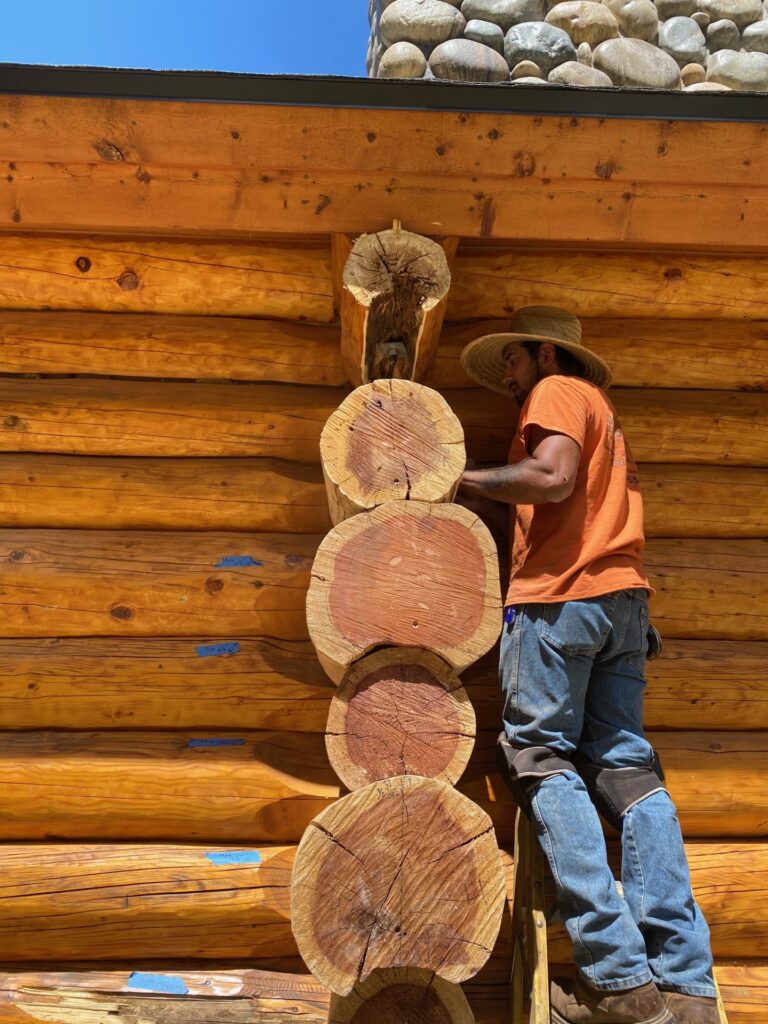
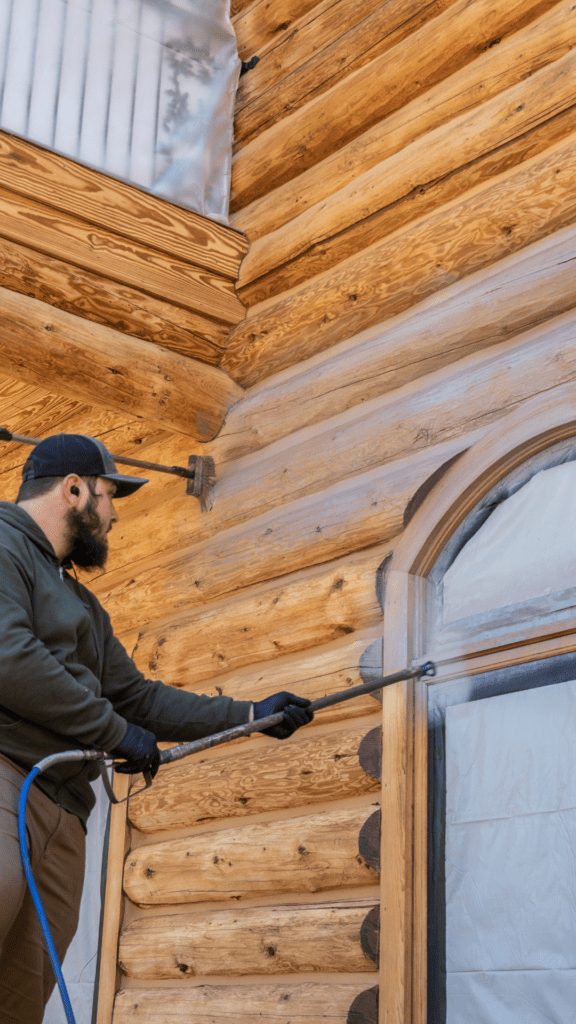
8: GET A DETAILED EXPLANATION ABOUT PRODUCT CHOICES.
Ask a contractor what products he or she uses and why. Words like “durability,” “strength” and “warranty” should filter to the top. If the contractor says, “it’s the cheapest on the market,” as their primary driver for product selection, this should be a big red flag that sends you running. You want a contractor who is consciously choosing products that will give you the best performance.
9: UNDERSTAND EXACTLY WHAT YOU’RE GETTING FOR YOUR MONEY.
Make sure each contractor gives you a detailed, itemized bid. Open-ended time and materials bids are appropriate for some jobs and not for others. For example, don’t accept something to the effect of “apply two coats of stain” as a description for that portion of the job. Instead, it should say, “spray on, according to manufacturer’s instructions, two coats of stain. Back brush each coat. Must allow adequate dry time between coats – usually 24 hours.” Having as much detail as possible will leave less room for misunderstandings during the project.
10: DON’T LET PRICE BE YOUR GUIDE.
You want to save money, of course, but if one contractor’s bid comes in a lot lower than the others, there’s probably a reason. Less scrupulous contractors may come in low to get the work and then upcharge you later for “unforeseen circumstances.” Then again, a good contractor’s rates might simply be less than his competitors. Again, this is where the level of detail included in the bid will go a long way to helping you decide if a price is fair. Remember: This isn’t an area where you want to skimp. Being cheap may cost you in the end.
11: GO WITH YOUR GUT.
The smart shopper gets at least three to five bids before making a decision. And yes, all of the above research is important to keep in mind. But in the end, you should choose a person who is the right fit for you personally. If a contractor’s reputation is stellar and their price is right, but you don’t get a good feeling from him or her, there’s probably a reason — even if that reason isn’t tangible. Trust and communication are key components in any home-im-provement related process. With those, you will be well on your way to successful log home maintenance or restoration and achieve a log home you will love for a lifetime.

You started in the right place. Now its time to
get in touch with the pros who know logs.
Speak with a real human!
We’re here to help see your project through to the end.
Not sure which stain product is right for your home? Looking for the nearest location to buy products for your log home project? Looking to hire a log home contractor? Don’t know exactly how to apply your stain samples? We’re here to help.

